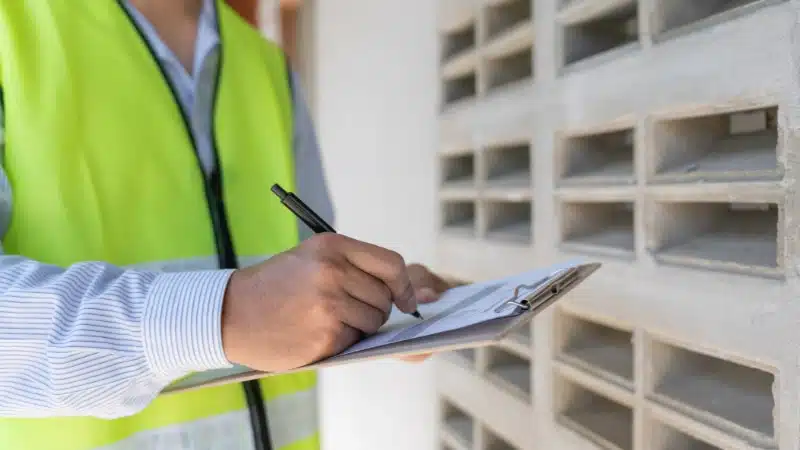
For property owners and managers in California, adhering to building safety codes is crucial for the safety and well-being of residents. SB721, which addresses the maintenance of balconies and decks, is a critical regulation in this context. Enacted on January 1, 2019, this legislation specifically applies to multi-family buildings with three or more units. The introduction of SB721 followed a devastating incident in 2015 where a balcony collapse resulted in six fatalities and seven injuries.
This law aims to prevent such accidents by ensuring regular upkeep of these structures. However, non-compliance with SB721 inspection law can lead to severe penalties for property owners and managers in California. In this blog, we will discuss the consequences of non-compliance with SB721 inspection and how to stay ahead to ensure your property’s and its residents’ safety.
The Key Provisions of SB721
Before discussing the penalties for non-compliance, it’s important to know the fundamental provisions of SB721. The law mandates that all buildings with three or more multi-family units constructed before January 1, 2005, must undergo regular inspections of their exterior elevated elements, such as balconies, decks, and walkways. Here are the primary requirements of SB721 in detail:
Inspection Obligation
Property owners in California must have their decks, balconies, & other elevated walkways inspected at least once every 6 years. A licensed architect, engineer, or contractor must conduct these inspections. The inspection report must be submitted to the local building department to ensure transparency and regulatory compliance.
Reporting and Repair
If any issues are found during inspections, property owners are obligated to report these findings to the local building department immediately. Moreover, the law mandates the quick repair of any identified problems. This requirement aims to ensure these exterior elevated elements’ ongoing safety and structural integrity, thereby preventing potential accidents and hazards.
Tenant Notification
Property owners must inform tenants about upcoming inspections, necessary repairs, and any unresolved issues related to the structural integrity of balconies, decks, and other elevated exterior elements. This provision ensures that tenants are aware of potential safety concerns and the steps being taken to address them.
Financial Penalties for Non-Compliance with SB721 Inspection
Non-compliance with the inspection requirements set forth by SB721 can result in significant financial penalties. Here is a detailed overview of these penalties:
Fines
One of the most immediate and tangible consequences of non-compliance with SB721 is the imposition of fines by local jurisdictions. These fines can range from $100 to $500 per day for each violation, quickly accumulating if issues aren’t addressed quickly. The financial burden of these fines can strain a property’s budget and significantly erode profitability. For example, if a violation persists for a month, fines can amount to $3,000 to $15,000, severely impacting financial resources.
Legal Liability
Non-compliance with SB721 carries significant financial risks that extend far beyond fines. In the event of a balcony-related accident, such as a collapse or railing failure, the property owner or manager could face substantial legal liability. Lawsuits arising from such incidents may seek compensation for medical expenses, lost wages, pain & suffering, and even punitive damages. Legal fees, expert witness costs, & court filings can quickly accumulate to hundreds of thousands of dollars, potentially jeopardizing the financial stability of your property or business.
Insurance Ramifications
Your insurance company might add to your financial stress following a balcony incident. If you have a record of not complying with SB721 inspection law, your insurance premiums could significantly increase. Even more concerning, your insurer might completely deny coverage in the event of a balcony-related incident. This means that any liability claims arising from the incident would not be covered by your insurance policy. Consequently, you would be solely responsible for covering all damages and legal fees.
Decrease Property Value & Reputation
While the financial costs of fines, lawsuits, and increased insurance premiums are quantifiable, the damage to your property’s reputation is equally significant and harder to measure. A balcony failure, regardless of the legal outcomes, can severely tarnish your reputation as a property owner or manager. Moreover, negative publicity associated with such an incident can also impact the perceived value of your property. Potential buyers may be deterred by the history of safety issues, making your property less appealing on the market. This can complicate your efforts to sell or refinance, ultimately affecting your financial standing and investment returns.
What Are the Requirements of SB721 to Avoid Penalties?
To avoid penalties under SB721, property owners must comply with the following requirements:
- All SB721 safety inspections must be carried out by inspectors who meet the qualifications specified under SB721. These qualified professionals include general contractors with “A,” “B,” or “C-5” license classifications and at least five years of experience, as well as architects, engineers, and certified building inspectors.
- If an inspection identifies issues with the EEE (Exterior Elevated Elements), the individual responsible for the repairs cannot be the same person who performed the initial inspection. Installing balcony inspection vents for some of the elevated exterior elements is mandatory to avoid penalties.
- Inspection reports must fulfill three key requirements: they must describe the current condition of the EEE, specify the expected service life of the elevated element, and provide recommendations for additional inspections, if necessary, as determined by the inspector.
- Property inspectors must submit their inspection reports within 45 days of the inspection date.
Conclusion
Non-compliance with California’s SB721 law mandating regular inspections of balconies and elevated walkways in multi-family buildings can result in severe penalties for property owners. These include hefty daily fines, costly liability lawsuits from accidents, increased insurance premiums, decreased property value, and reputational damage.
To avoid these risks, conducting timely inspections by qualified professionals, quickly addressing issues, installing balcony inspection vents from Vulcan Vents, and maintaining documentation are crucial. Our vents meet all SB721 inspection law requirements, providing reliable solutions for multi-family residential properties. Contact Us Today!
